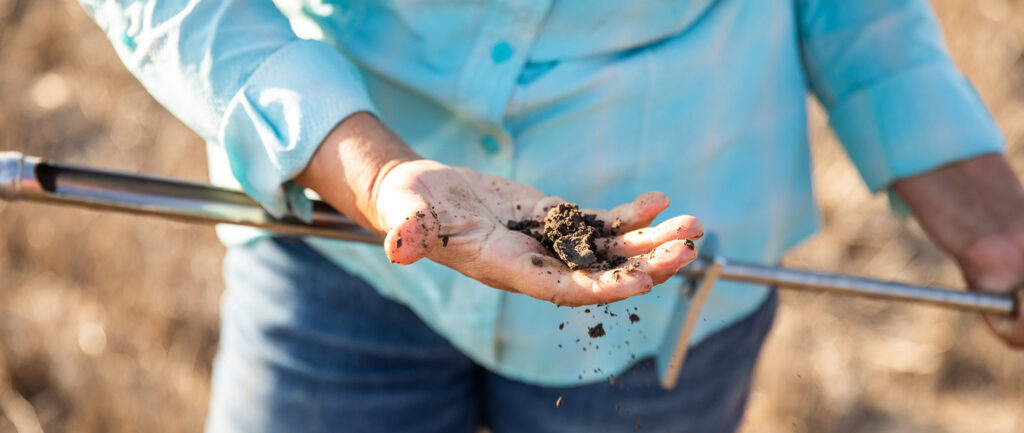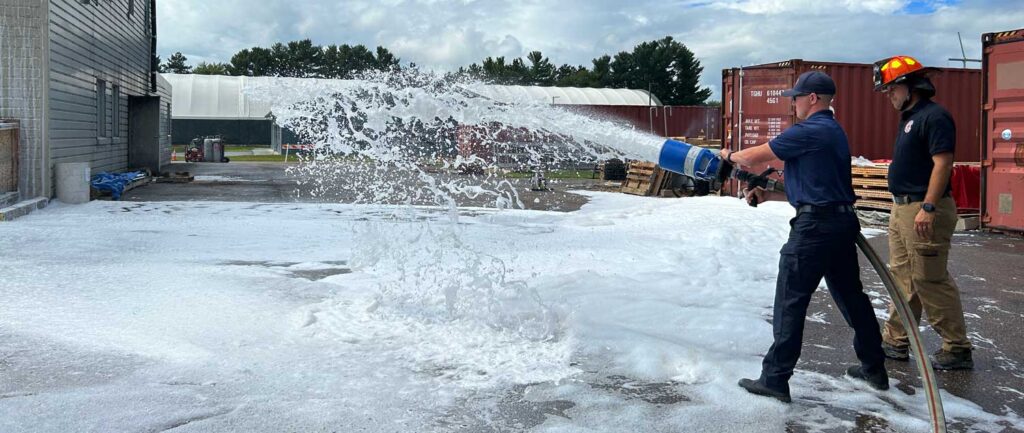Joel Schreurs prefers that progress moves at a brisk pace. But the Lincoln County farmer learned the prudence of playing the long game while serving nearly a decade on the Soy Transportation Coalition board.
“It drives me crazy because I’m not a patient person,” he said, chuckling. “I like getting stuff done, and I think we did on a lot of projects.”
During his nine years on the coalition, Schreurs grew to accept that government investment in transportation and infrastructure means change doesn’t occur overnight.
“Whenever you’re dealing with federal and state government funds, it takes a long time,” he said. “But the board is a good group, and they’ll continue to work to implement different measures to make the transportation of beans more efficient.”
Schreurs is a longtime director with both the Minnesota Soybean Growers Association and American Soybean Association. He’s served on the Minnesota Soybean Research & Promotion Council’s market development and promotion action teams, which appointed him to the STC in 2011. Prior to becoming a farmer-director, Schreurs said he had little curiosity about the path his soybeans took once they left his southwest Minnesota farm.
“I wasn’t really interested in transportation issues. Even prior to joining MSGA, I sold my beans at the local elevator and never thought about how they get to where they’re going,” he said. “Since working with MSGA, ASA and the STC, that’s really changed.”
Helping agriculture
Schreurs served two years on the STC board as secretary/treasurer. In 2018, he was elected vice president and was re-elected in 2019. His final three-year term concluded following the STC’s annual meeting.

“I was involved in nearly all of our initiatives,” he said.
Some major projects started by STC during Schreurs’ tenure included: increasing truck weight limits, deepening the lower Mississippi River and testing rural bridges with new, innovative technology.
“Deepening of the Mississippi makes the system more efficient and creates a better basis, even if most of Minnesota’s soybeans go through the Pacific Northwest,” Schreurs said. “I believe it helps all of agriculture, even outside the soybean industry.”
During the December annual meeting, the STC board elected Kentucky soybean farmer Jonathan Miller chair and emphasized the initiatives the organization seeks to continue to advance in 2021, including:
• Continuing to support and encourage the project underway to deepen the lower Mississippi River.
• Increasing the implementation of innovative and economical methods for repairing and replacing rural bridges.
• Promoting greater access to barge transportation along the Missouri River for the soybean industry.
• Promoting the greater use of soy-based concrete and asphalt sealants and enhancers throughout the soybean supply chain.
• Continuing to advocate for sufficient and sustainable funding for locks and dams along the inland waterway system.
• Promoting the greater utilization of containers for soybean exports, particularly along the inland waterway system.
“It is a privilege to work on behalf of such a thoughtful and professional group of farmers,” STC Executive Director Mike Steenhoek said. “I sincerely appreciate Joel Schreurs’ leadership and service. We are a better organization because of (him).”

The nuts and bolts of it
Schreurs said he’s cautiously optimistic the United States will maintain its infrastructure edge over South America. 2020 underscored the importance of the supply chain, and Schreurs is hopeful the incoming Biden administration and the Minnesota Legislature will make transportation upgrades a priority. Infrastructure improvements benefit not just those involved in agriculture, but private companies and the greater good, Schreurs said.
“It comes down to infrastructure,” he said. “Right now, with everything else being equal, we have an advantage over South America. But if we don’t keep that infrastructure, we’re going to lose that advantage and make the South American beans cheaper.”
The annual meeting was held virtually due to COVID-19 gathering concerns. Instead of spending an estimated six weeks on the road this year, Schreurs has mostly stayed close to his farm since traveling to Commodity Classic last winter. In 2021, he hopes to devote more time to his advocacy efforts with ASA and MSGA.
MSR&PC’s promotion action team will soon appoint a farmer-leader to replace Schreurs on the STC.
“It was a good experience with the STC,” Schreurs said. “I appreciated all the board members I served with, and I really feel we moved the needle on a lot of our priorities.”







